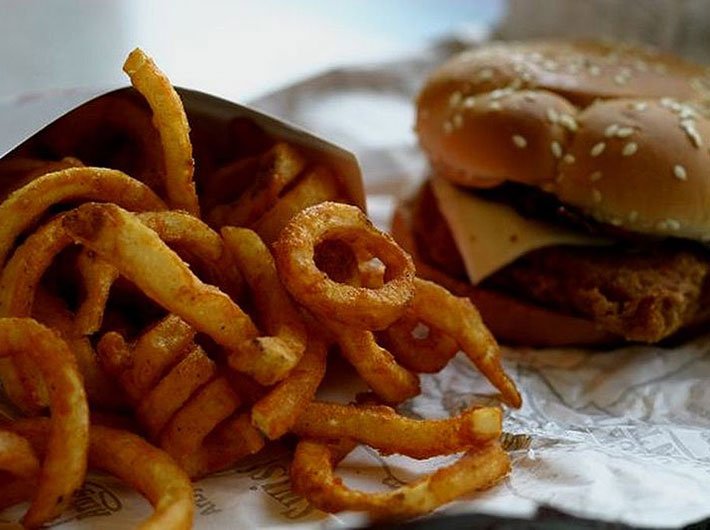Tax on junk food is a wake-up call to tackle obesity. India is caught in a cleft stick – dealing with obesity at a time when malnourishment situation is grim
Kerala imposing a tax on junk food, now popularly referred to as fat tax, puts the spotlight on rising obesity, an issue that should have been addressed quite some time.
Chubby kids do look cute. However, there are serious health issues associated with being obese, due partly to hogging tasty junk food like pizzas and burgers.
Kerala finance minister Thomas Issac, in his first budget on Friday, imposed 14.5 percent "junk tax" on popular fast-food. The minister expects to raise Rs10 crore through this.
The move by Kerala is in line with what European countries like Denmark and Hungary have already done by taxing junk food.
According to a study in journal Lancet, India is just behind US and China in the list of top 10 countries where there is highest number of obese.
The study - titled 'Global, regional, and national prevalence of overweight and obesity in children and adults during 1980-2013: A systematic analysis for the Global Burden of Disease Study 2013' – showed that China and India together accounted for 15 percent of the world's obese population, with 46 million and 30 million obese people, respectively.
The number of overweight and obese people globally increased from 857 million in 1980 to 2.1 billion in 2013, showed the study.
According to obesity foundation of India, obesity is a disease characterised by excessive body fat. People who are medically obese usually are affected by behaviour, genetic and environmental factors that are difficult to control with dieting. Obesity increases the likelihood of certain diseases and other related health problems.
So, what is the difference between overweight and obese? Stages of overweight are medically defined by body mass index (BMI). An individual with a BMI of 25 to 29.9 is clinically classified as overweight. A BMI of 30 or more is classified as obese.
The disparity of obesity and malnourishment can’t be more glaring than in this country. The World Bank said in a report – Undernourished children: A call for reform and action – that India’s Integrated Child Development Services (ICDS) needs to undergo significant changes to address the current malnutrition crisis in India. The prevalence of underweight children in India is among the highest in the world, and is nearly double that of Sub-Saharan Africa, the report says. It also observes that malnutrition in India is a concentrated phenomenon. A relatively small number of states, districts, and villages account for a large share of the burden – 5 states and 50 percent of villages account for about 80 percent of the malnutrition cases.
In any case, now that the fat tax has been imposed, it is time we understand its health implication.
Research by Kanishka Misra of the University of Michigan's Ross School of Business shows how a fat tax could work, and help consumers to make healthier consumption decisions. He and co-authors Romana Khan of Özyegin University in Turkey and Vishal Singh of New York University accomplished this by analysing milk purchases.
Their results showed that for a fat tax to nudge consumers to make healthier choices, they have to see the actual price difference on the shelf.
"Even a small difference in price, 10 to 15 cents, is enough to make consumers switch," a press release quoted Misra as saying. "Most people didn't pick the cheapest option, but they do move down to one with lower fat content."
"A selective tax mechanism that lowers the relative prices of healthier options, and is reflected on the shelf, can serve as an effective health policy tool in the efforts to control obesity," Misra was quoted as saying.
Misra adds that part of a fat tax could include a subsidy for healthier products. This could nudge consumers to make healthier decisions while keeping retailers' revenue neutral. "Our objective was to help policymakers have good empirical evidence that these sorts of price nudges can work, and how they work.”
That brings me back to the basic issue of tackling obesity. Just to highlight my point an elderly couple died in Gujarat’s Rajkot city on July 4 after a 68-year-old woman who weighed a staggering 128 kg slipped on the staircase in her home and fell on her husband. They both died.
It is time policy makers also gave a thought to rising obesity in the country and not just to make money out of it by imposing a fat tax.

